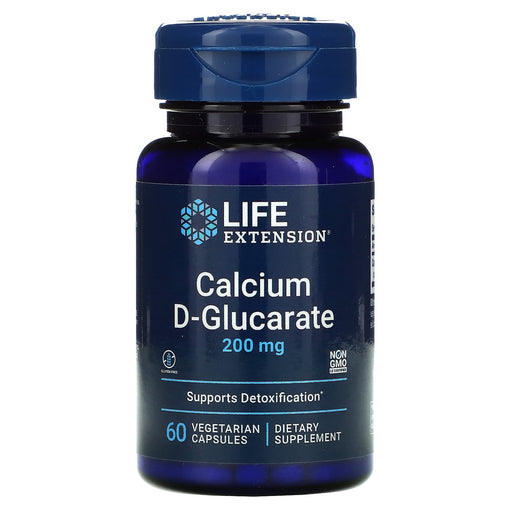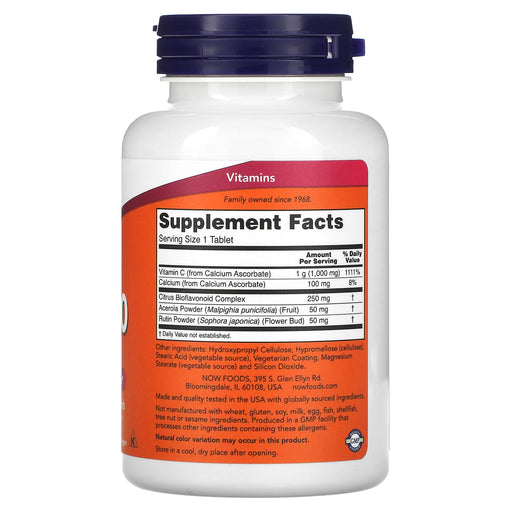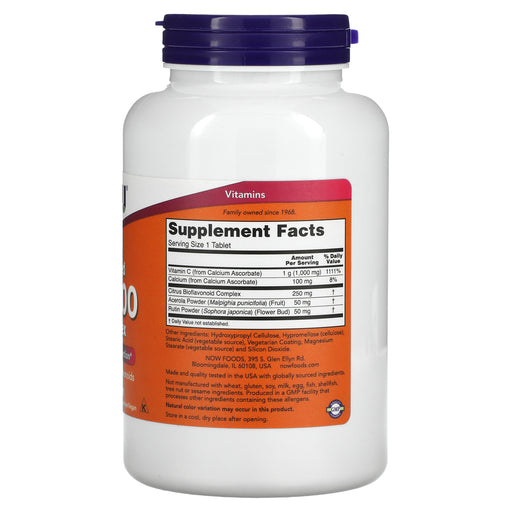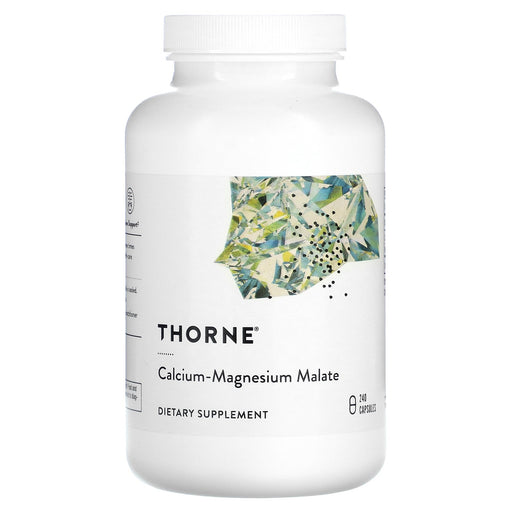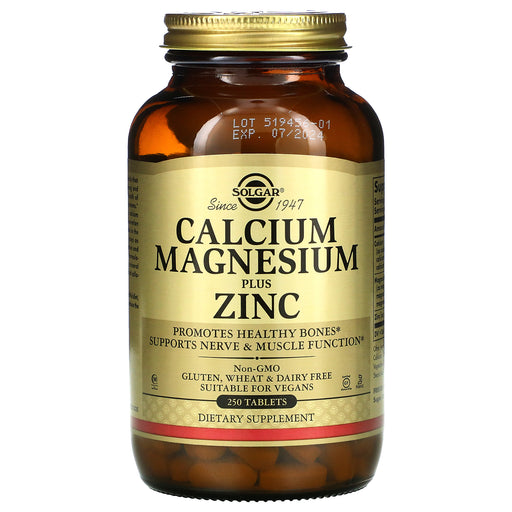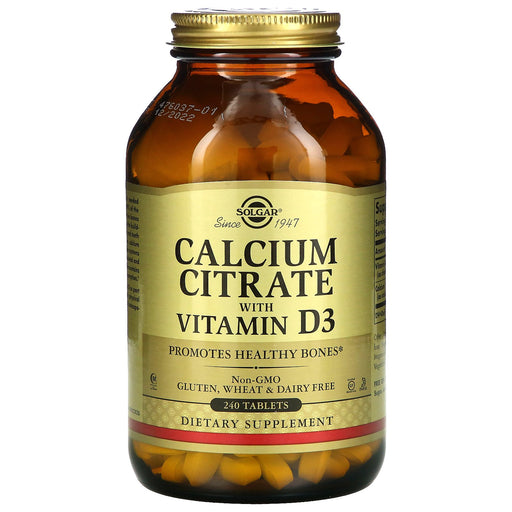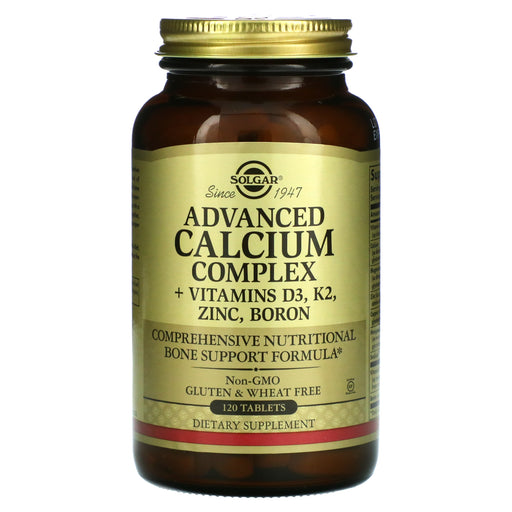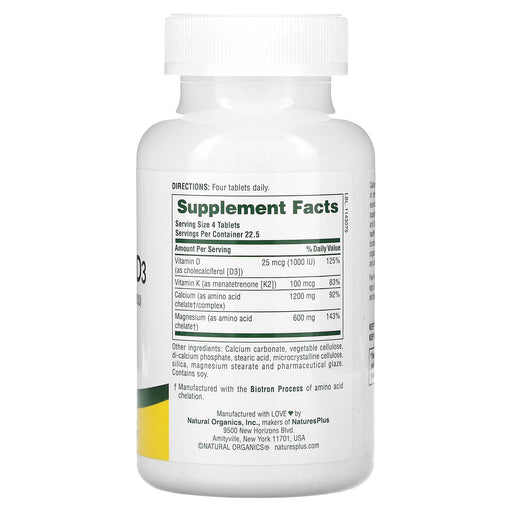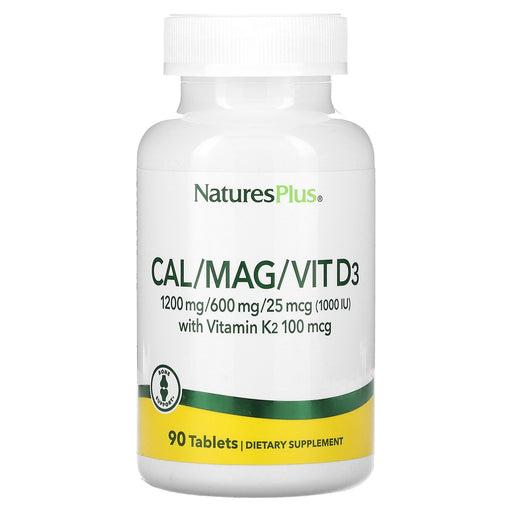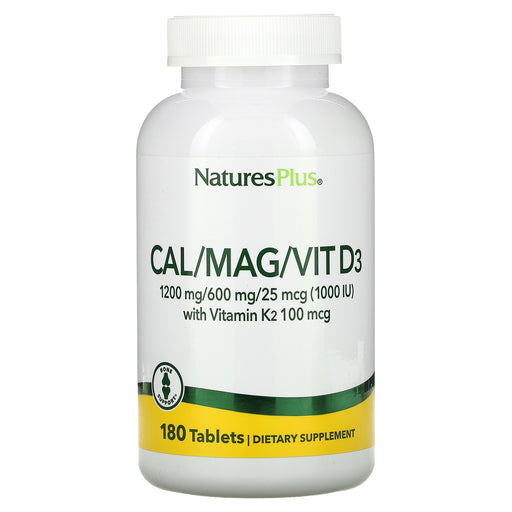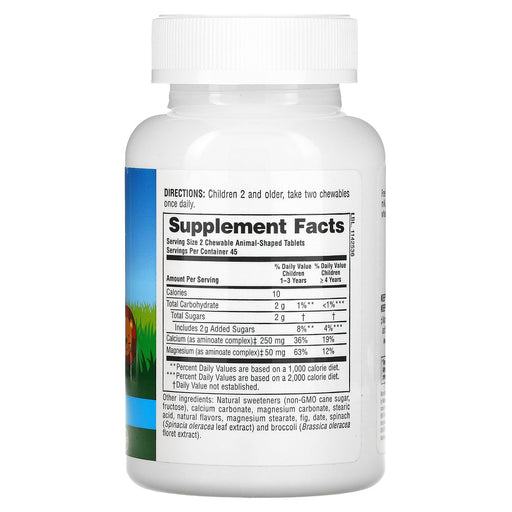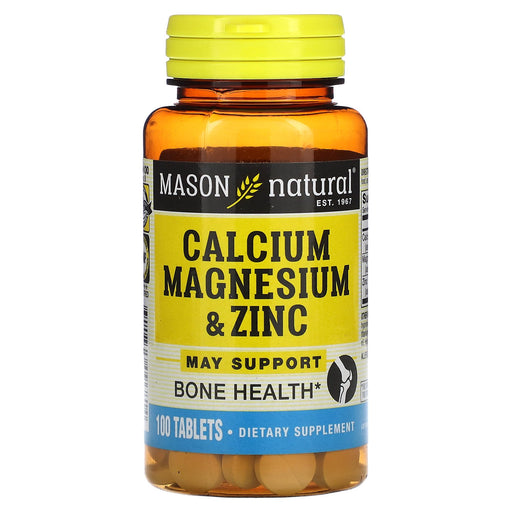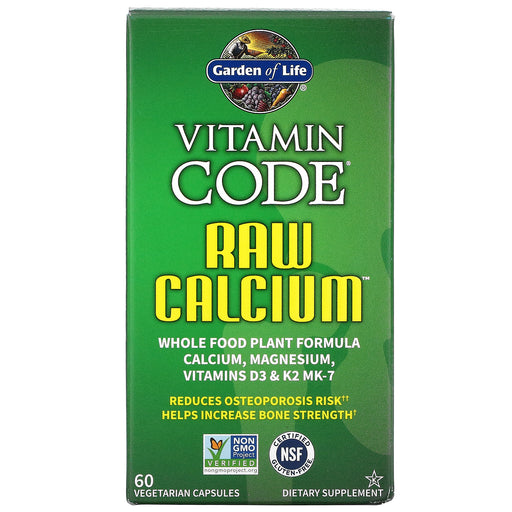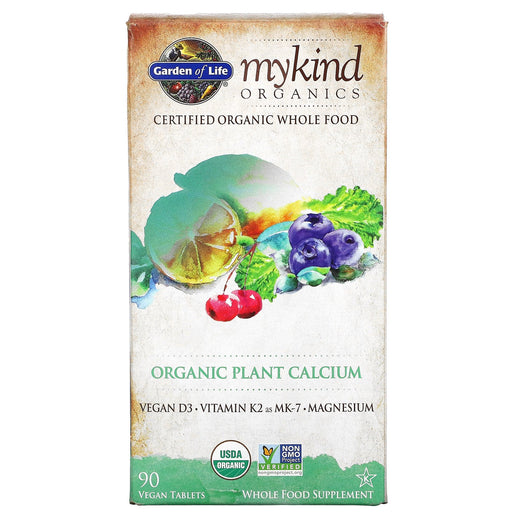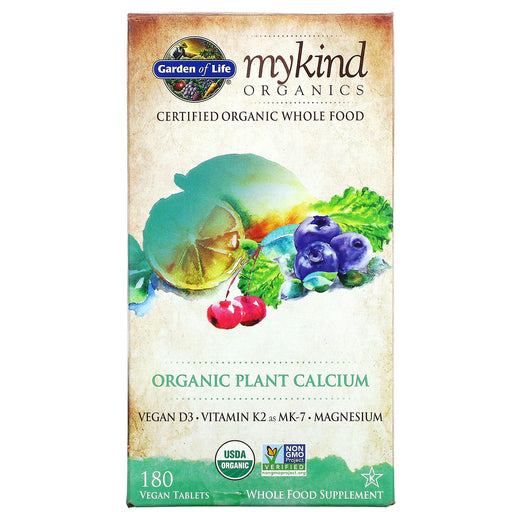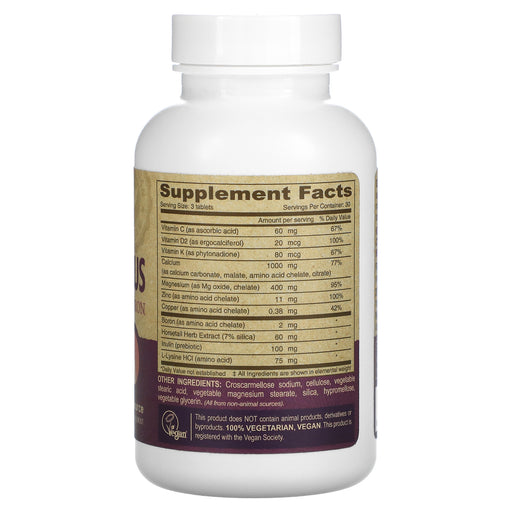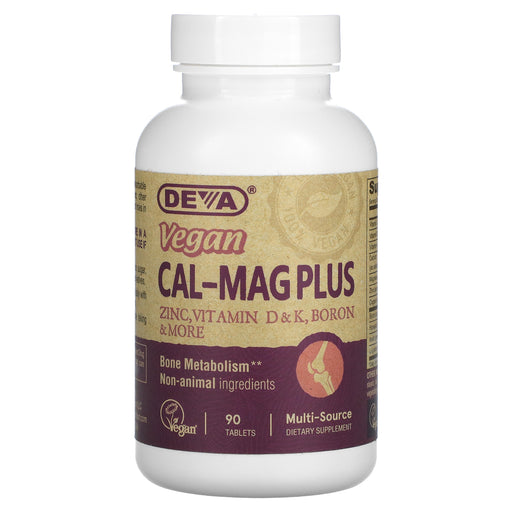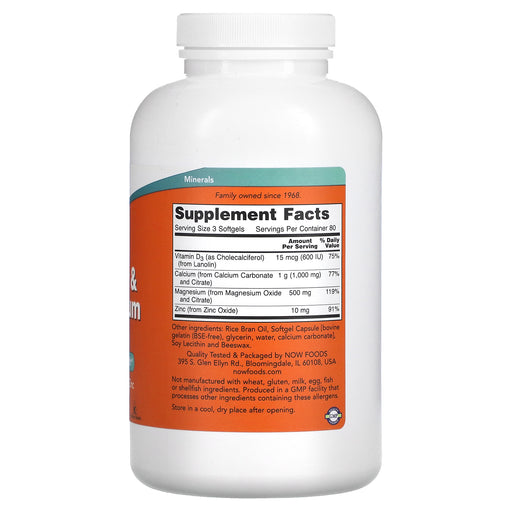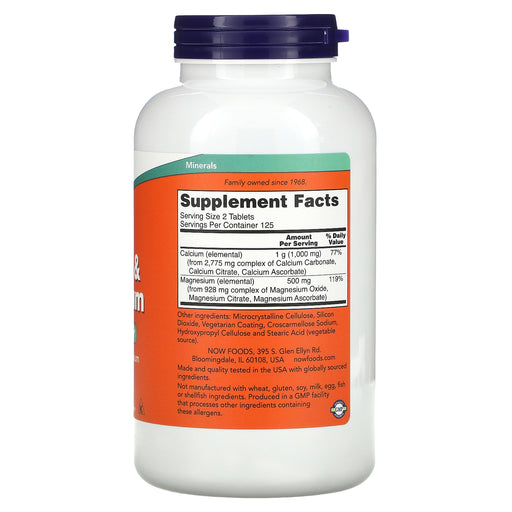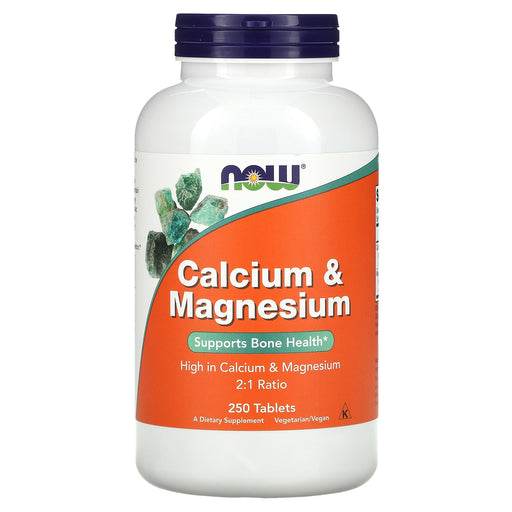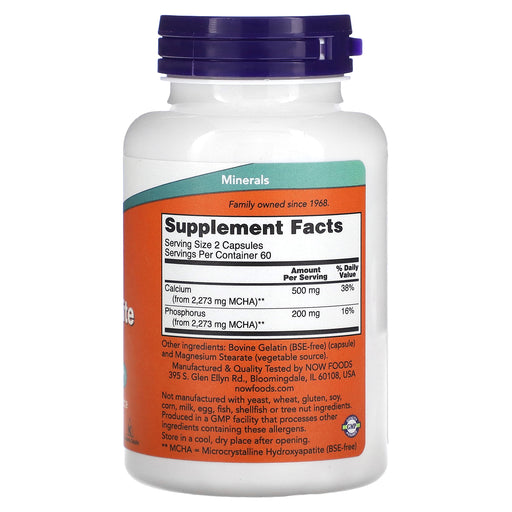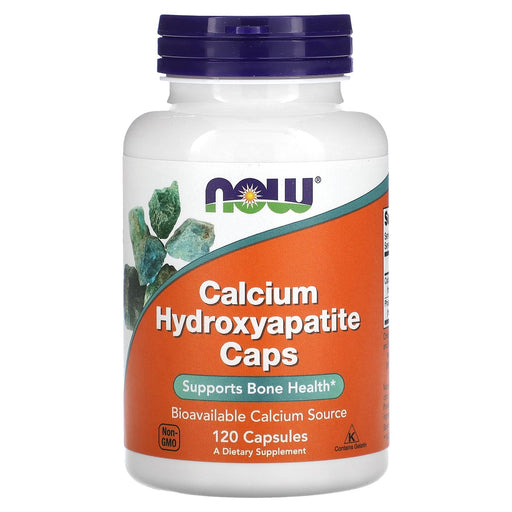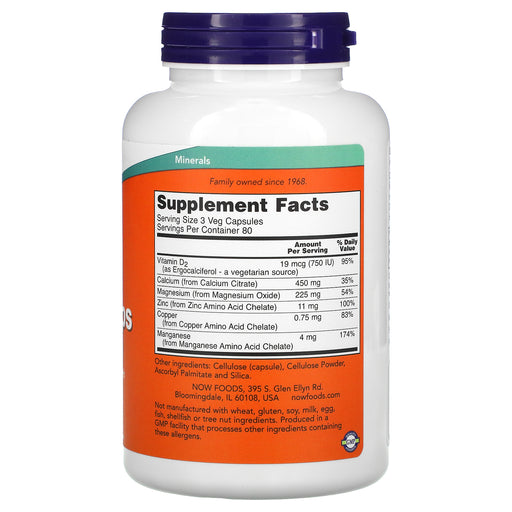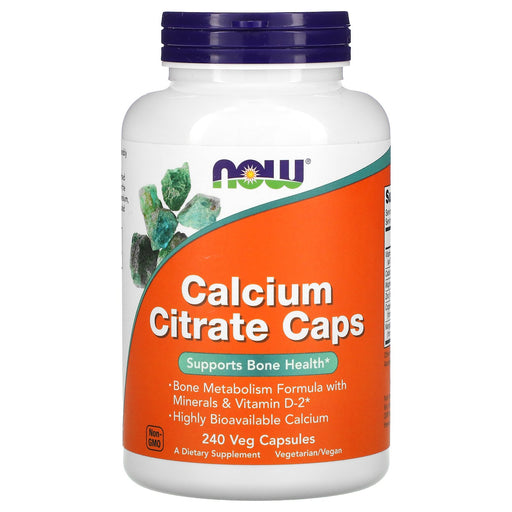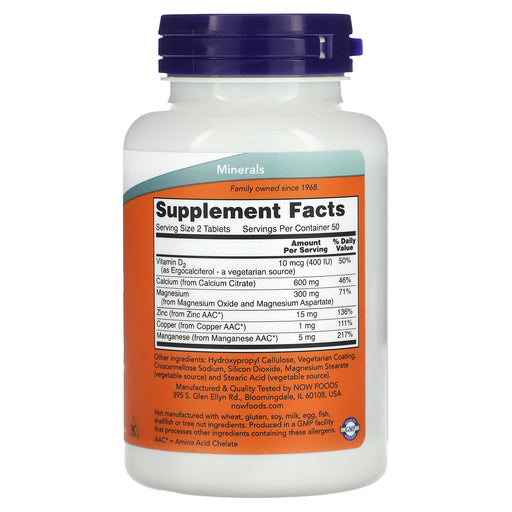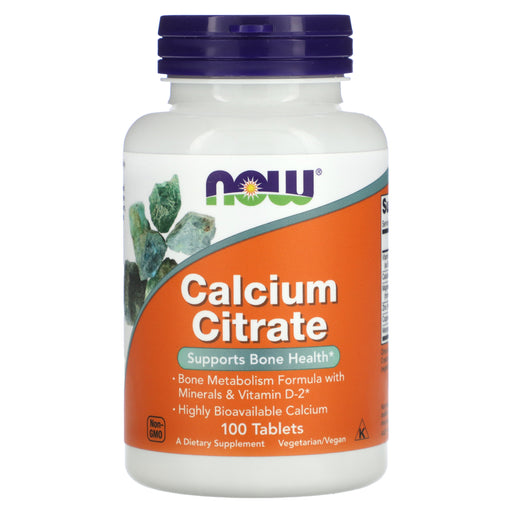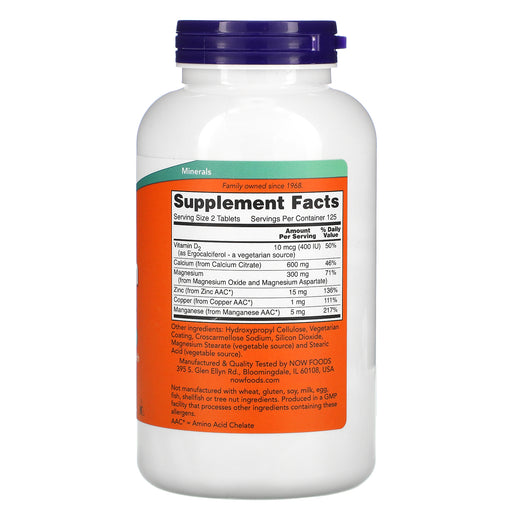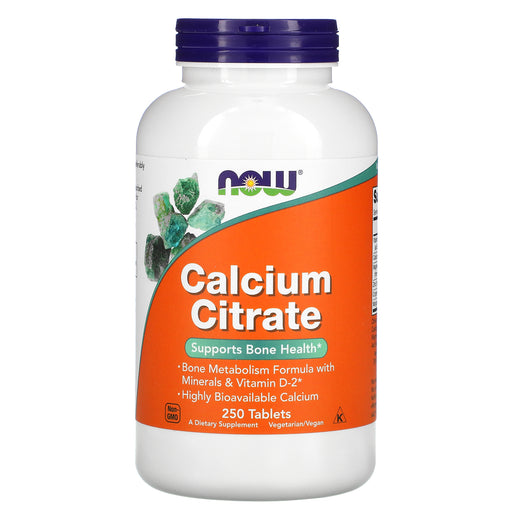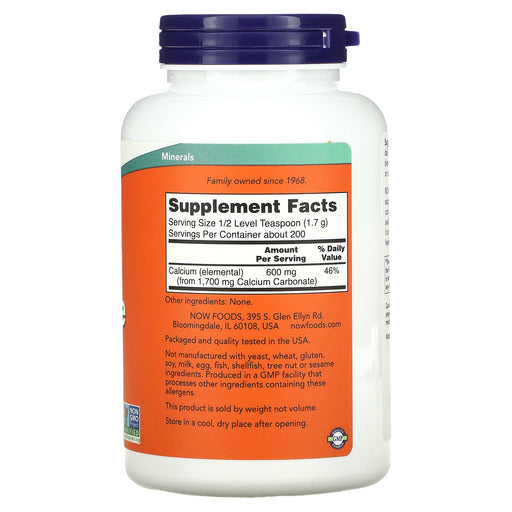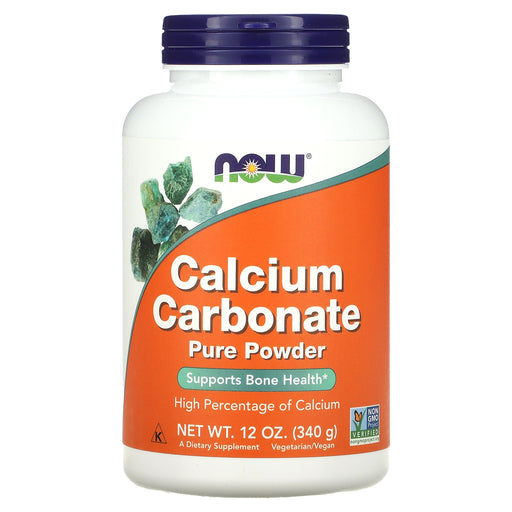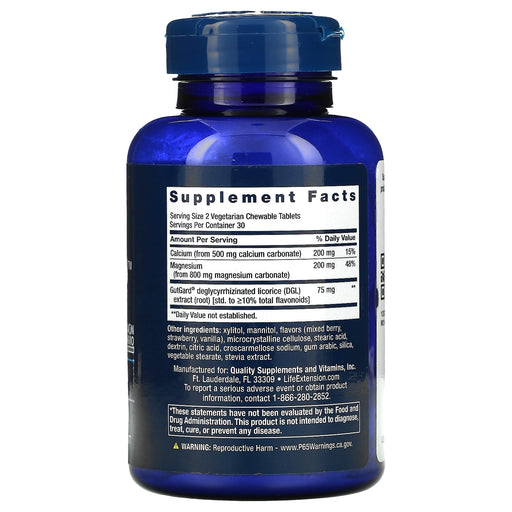
Fortify Your Bones and Teeth with Premium Calcium Supplements
Calcium is one of the most essential minerals in the human body, playing a crucial role in maintaining strong bones and teeth, supporting muscle and nerve function, and promoting overall health and well-being. While a balanced diet rich in calcium-containing foods is important, many individuals may benefit from additional support through supplementation. At Health Orchard, we offer a carefully curated selection of premium supplements designed to help you optimize your calcium intake and support lifelong bone health.
The Importance of Calcium for Optimal Health
Calcium is a vital nutrient that plays a key role in many of the body's essential functions, including:
- Bone and Tooth Health: Calcium is the primary mineral that makes up our bones and teeth, providing strength, density, and structural integrity. Adequate calcium intake is essential for building and maintaining strong bones throughout life, helping to reduce the risk of osteoporosis and fractures.
- Muscle Function: Calcium is involved in muscle contraction and relaxation, playing a crucial role in muscle function and strength. Sufficient calcium intake can help support healthy muscle performance, reduce the risk of muscle cramps, and promote overall mobility.
- Nerve Signaling: Calcium is essential for proper nerve function, as it helps regulate the transmission of nerve impulses throughout the body. Adequate calcium levels can help support healthy nerve signaling, promoting optimal brain function, reflexes, and overall neurological health.
- Cardiovascular Health: Calcium plays a role in regulating heart rhythm and supporting healthy blood clotting. Adequate calcium intake, along with other essential nutrients like vitamin K2 and magnesium, can help support optimal cardiovascular function and reduce the risk of certain heart-related conditions.
- Hormone Secretion: Calcium is involved in the secretion of certain hormones, such as insulin, which helps regulate blood sugar levels. Sufficient calcium intake can help support healthy hormone balance and overall metabolic function.
The Benefits of Calcium Supplementation
While a balanced diet rich in calcium-containing foods like dairy products, leafy greens, and fortified foods can help meet daily calcium needs, many individuals may benefit from additional support through supplementation. Some of the key benefits of calcium supplementation include:
- Supporting Bone Density: Calcium supplements can help ensure that the body has an adequate supply of this essential mineral for building and maintaining strong, dense bones. This is particularly important for older adults, postmenopausal women, and those with a family history of osteoporosis.
- Reducing the Risk of Fractures: By supporting optimal bone density and strength, calcium supplements can help reduce the risk of fractures, particularly in older adults and those with a higher risk of osteoporosis.
- Promoting Muscle and Nerve Function: Calcium supplements can help support healthy muscle contraction and nerve signaling, promoting optimal muscle strength, coordination, and overall neurological function.
- Supporting Cardiovascular Health: Adequate calcium intake through diet and supplementation can help support healthy heart function, blood clotting, and overall cardiovascular health.
- Complementing Vitamin D and Other Nutrients: Calcium supplements are often combined with other essential nutrients like vitamin D, which helps the body absorb and utilize calcium more effectively. Some supplements also include magnesium, vitamin K2, and other synergistic nutrients that work together to support optimal bone health.
Experience Health Orchard's Premium Selection of Calcium Supplements
At Health Orchard, we're committed to providing you with the highest-quality calcium supplements to support your bone health and overall well-being. Our carefully selected products are formulated with optimal absorption and bioavailability in mind, ensuring that you receive the maximum benefits from each dose.
Some of our most popular calcium supplements include:
- Calcium Citrate: Our calcium citrate supplements provide a highly absorbable form of calcium that is gentle on the digestive system. This form of calcium is ideal for those with lower stomach acid levels or those taking acid-blocking medications.
- Calcium Carbonate: Our calcium carbonate supplements offer a concentrated form of calcium that is best absorbed when taken with food. This form of calcium is often more affordable and convenient for those who prefer to take their supplements with meals.
- Calcium & Vitamin D: Our calcium and vitamin D supplements provide a synergistic blend of these two essential nutrients, supporting optimal calcium absorption and utilization for strong, healthy bones. Vitamin D also plays a crucial role in immune function, mood regulation, and overall health.
- Calcium & Magnesium: Our calcium and magnesium supplements offer a balanced ratio of these two essential minerals, which work together to support bone health, muscle function, and overall relaxation and well-being.
- Plant-Based Calcium: For those following a vegan or vegetarian lifestyle, our plant-based calcium supplements provide a high-quality, bioavailable source of calcium derived from algae or other plant sources. These supplements are often enriched with other bone-supporting nutrients like vitamin D, vitamin K2, and boron.
How to Choose the Best Calcium Supplement for Your Needs
When selecting a calcium supplement, it's important to consider your individual needs, preferences, and health status. Some factors to keep in mind include:
- Absorption and Bioavailability: Look for calcium supplements that are formulated for optimal absorption and bioavailability, such as calcium citrate or hydroxyapatite. These forms of calcium are well-tolerated and easily absorbed by the body, ensuring that you receive the maximum benefits from each dose.
- Complementary Nutrients: Consider calcium supplements that include other essential bone-supporting nutrients like vitamin D, vitamin K2, magnesium, and boron. These nutrients work synergistically with calcium to support optimal bone health and overall well-being.
- Dosage and Serving Size: Pay attention to the dosage and serving size of your calcium supplement, and choose a product that aligns with your individual needs and dietary preferences. Keep in mind that the body can only absorb about 500 mg of calcium at a time, so it's best to split larger doses throughout the day.
- Quality and Purity: Choose calcium supplements from reputable brands that prioritize quality, purity, and transparency. Look for products that are third-party tested for potency and purity, and free from harmful additives, fillers, or contaminants.
- Consultation with a Healthcare Provider: If you have a pre-existing health condition, are taking medications, or have concerns about your calcium intake, it's always best to consult with a qualified healthcare provider before starting a new supplement regimen. They can help you determine the most appropriate form and dosage of calcium for your individual needs.
Simple Tips for Maximizing the Benefits of Calcium Supplementation
To get the most out of your calcium supplement, consider these simple tips:
- Take with Food: Calcium supplements are best absorbed when taken with a meal, particularly one that contains some fat and protein. This helps stimulate digestive enzymes and improve absorption, while also reducing the risk of digestive discomfort.
- Split Your Dose: If you're taking a higher dose of calcium, consider splitting it into smaller doses throughout the day. This can help maximize absorption and reduce the risk of digestive side effects.
- Pair with a Balanced Diet: While calcium supplements can help fill dietary gaps, they should not be used as a substitute for a balanced diet rich in calcium-containing foods. Aim to include a variety of calcium-rich foods like dairy products, leafy greens, and fortified foods in your daily diet.
- Stay Hydrated: Adequate hydration is important for overall health and can help support optimal calcium absorption and utilization. Aim to drink plenty of water throughout the day, and limit your intake of caffeine and alcohol, which can interfere with calcium absorption.
- Engage in Regular Weight-Bearing Exercise: In addition to adequate calcium intake, regular weight-bearing exercise is essential for building and maintaining strong, healthy bones. Engage in activities like walking, jogging, dancing, or strength training for at least 30 minutes a day, most days of the week.
Experience the Life-Changing Benefits of Optimal Calcium Intake
At Health Orchard, we're committed to providing you with the highest-quality, most effective calcium supplements to support your bone health and overall well-being. Our carefully curated selection offers a range of options to suit your individual needs and preferences, from highly absorbable forms like calcium citrate to synergistic blends with vitamin D and other essential nutrients.
Whether you're looking to support strong bones, reduce your risk of osteoporosis, or promote overall health and vitality, our premium calcium supplements can help you achieve your goals. With our unwavering commitment to quality, transparency, and your success, you can trust Health Orchard to be your partner in optimal bone health.
Experience the life-changing benefits of optimal calcium intake and witness the difference that targeted, high-quality supplementation can make in your overall health and well-being. Shop our collection today and take the first step towards fortifying your bones and teeth for a lifetime of strength and vitality.
Frequently Asked Questions about Calcium
1. What is calcium good for?
Calcium is an essential mineral that plays a crucial role in many bodily functions:
- Bone health: Calcium is a major component of bones and teeth, helping to maintain their strength and density. Adequate calcium intake is essential for the prevention of osteoporosis and fractures.
- Muscle function: Calcium is involved in muscle contraction, including the heartbeat. It helps regulate muscle function and nerve signaling.
- Blood clotting: Calcium plays a role in the blood clotting process, which is important for wound healing and preventing excessive bleeding.
- Hormone secretion: Calcium is involved in the secretion of hormones, such as insulin, which regulates blood sugar levels.
- Enzyme function: Calcium acts as a cofactor for many enzymes, helping them function properly in various metabolic processes.
- Cell signaling: Calcium is involved in cell-to-cell communication and signaling, which is essential for various physiological processes.
2. What foods are high in calcium?
Many foods are naturally high in calcium or fortified with calcium:
- Dairy products: Milk, yogurt, cheese, and cottage cheese are excellent sources of calcium.
- Leafy greens: Kale, collard greens, spinach, and turnip greens are rich in calcium.
- Fish: Canned fish with soft bones, such as sardines and salmon, are good sources of calcium.
- Tofu: Tofu made with calcium sulfate (check the label) is a good plant-based source of calcium.
- Fortified foods: Some orange juices, plant-based milks (almond, soy, oat), and cereals are fortified with calcium.
- Legumes: Beans, lentils, and peas contain moderate amounts of calcium.
- and seeds: Almonds, sesame seeds, and chia seeds provide some calcium.
Incorporating a variety of these calcium-rich foods into your diet can help you meet your daily calcium needs.
3. What are the main functions of calcium?
Calcium has several main functions in the body:
- Bone and teeth health: Calcium is the primary mineral component of bones and teeth, providing strength and structure. It is essential for the development and maintenance of bone density, helping to prevent conditions like osteoporosis and tooth decay.
- Muscle contraction: Calcium plays a crucial role in muscle contraction, including the heartbeat. It regulates the interaction between muscle fibers, allowing them to contract and relax properly.
- Nerve function: Calcium is involved in the transmission of nerve impulses. It helps regulate the release of neurotransmitters, which are essential for communication between nerve cells.
- Blood clotting: Calcium is necessary for the blood clotting process. It helps activate clotting factors and platelets, which work together to form blood clots and prevent excessive bleeding.
- Hormone secretion: Calcium is involved in the secretion of various hormones, such as insulin, which regulates blood sugar levels.
- Enzyme function: Calcium acts as a cofactor for many enzymes, helping them function properly in various metabolic processes throughout the body.
4. Who needs high calcium?
Several groups of people may have higher calcium needs:
- Children and adolescents: During periods of rapid growth and development, children and adolescents require higher amounts of calcium to support the formation of strong bones and teeth.
- Older adults: As people age, they may experience a decrease in bone density and an increased risk of osteoporosis. Older adults, particularly postmenopausal women, require adequate calcium intake to help maintain bone health and prevent fractures.
- Pregnant and breastfeeding women: During pregnancy and breastfeeding, women have increased calcium needs to support fetal bone development and maintain their own bone health.
- People with certain medical conditions: Some medical conditions, such as celiac disease, inflammatory bowel disease, and lactose intolerance, can interfere with calcium absorption and increase the risk of deficiency.
- Athletes: Some athletes, particularly those involved in weight-bearing activities, may have higher calcium needs to support bone health and prevent stress fractures.
5. What happens if calcium is high?
High blood calcium levels, also known as hypercalcemia, can lead to various symptoms and health issues:
- Digestive problems: High calcium levels can cause nausea, vomiting, constipation, and abdominal pain.
- Kidney issues: Excess calcium can lead to the formation of kidney stones and impair kidney function.
- Bone health: Although calcium is essential for bone health, excessively high levels can paradoxically lead to bone weakening and an increased risk of fractures.
- Neurological symptoms: Hypercalcemia can cause confusion, fatigue, weakness, and in severe cases, coma.
- Cardiovascular effects: High calcium levels can affect heart function, leading to irregular heartbeats and increased blood pressure.
- Dehydration: Excess calcium can cause increased thirst and frequent urination, leading to dehydration.
Causes of high calcium levels include overactive parathyroid glands, certain types of cancer, excessive vitamin D intake, and some medications. If you suspect you have high calcium levels, consult your healthcare provider for proper diagnosis and treatment.
6. What happens if your calcium is too high?
When your blood calcium levels are too high (hypercalcemia), it can lead to various symptoms and health problems:
- Gastrointestinal issues: You may experience nausea, vomiting, loss of appetite, constipation, and abdominal pain.
- Kidney problems: Excess calcium can cause kidney stones and impair kidney function, potentially leading to kidney failure if left untreated.
- Bone health: Although calcium is necessary for strong bones, excessively high levels can actually weaken bones and increase the risk of fractures.
- Neurological symptoms: Hypercalcemia can cause confusion, fatigue, lethargy, and in severe cases, coma.
- Cardiovascular effects: High calcium levels can affect heart function, causing irregular heartbeats (arrhythmias) and hypertension.
- Dehydration: Excess calcium can lead to increased thirst and frequent urination, which may result in dehydration if fluid intake is not sufficient.
If you experience symptoms of high calcium levels or have concerns about your calcium intake, consult your healthcare provider.
7. What foods should I avoid when calcium is high?
If you have high blood calcium levels (hypercalcemia), your healthcare provider may recommend avoiding or limiting certain foods that are high in calcium:
- Dairy products: Milk, cheese, yogurt, and other dairy products are rich in calcium. You may need to limit or avoid these foods, depending on the severity of your hypercalcemia.
- Fortified foods: Some foods, such as orange juice, cereals, and non-dairy milks, are fortified with calcium. Check labels and avoid or limit these products as needed.
- Calcium-rich vegetables: Certain vegetables, such as spinach, kale, and collard greens, are high in calcium. While these foods are generally healthy, you may need to consume them in moderation if you have hypercalcemia.
- Canned fish with bones: Sardines and canned salmon with bones are high in calcium. Avoid or limit these foods if your calcium levels are too high.
8. What causes calcium to be high?
Several factors can cause high blood calcium levels (hypercalcemia):
- Hyperparathyroidism: This condition occurs when the parathyroid glands produce too much parathyroid hormone (PTH), which regulates calcium levels in the blood. Excess PTH can lead to the release of too much calcium from the bones into the bloodstream.
- Certain types of cancer: Some cancers, such as lung cancer, breast cancer, and multiple myeloma, can cause high calcium levels by releasing substances that mimic PTH or by spreading to the bones and releasing calcium.
- Excessive vitamin D intake: Taking too much vitamin D through supplements can lead to increased calcium absorption from the gut and cause hypercalcemia.
- Medications: Some medications, such as lithium and thiazide diuretics, can increase calcium levels in the blood.
- Prolonged immobilization: Being immobile for an extended period, such as during a long hospital stay, can cause calcium to be released from the bones and lead to hypercalcemia.
9. What is a normal calcium level?
Normal blood calcium levels typically range from 8.5 to 10.2 milligrams per deciliter (mg/dL) in adults. However, the exact reference range may vary slightly depending on the laboratory and the specific test used.
- Calcium in the blood exists in two forms: free (ionized) calcium and bound calcium (attached to proteins, primarily albumin).
- The total calcium level measures both free and bound calcium, while the ionized calcium test measures only the free, biologically active form of calcium.
- Doctors may order a corrected calcium test, which adjusts the total calcium level based on the blood albumin level, to get a more accurate picture of calcium status.
If your calcium levels fall outside the normal range, your healthcare provider will investigate the cause and recommend appropriate treatment:
- Hypocalcemia (low calcium levels) can cause symptoms such as muscle cramps, tingling sensations, and seizures.
- Hypercalcemia (high calcium levels) can lead to symptoms like fatigue, confusion, abdominal pain, and excessive thirst and urination.



